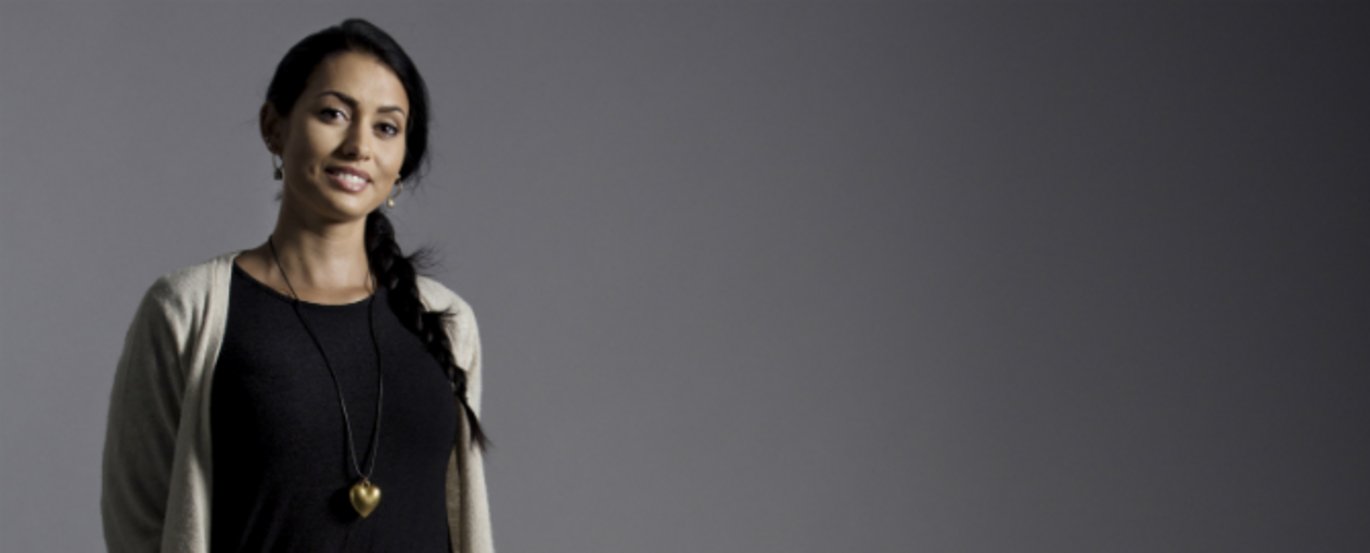A pair of silicone breasts on stilettos or a know-it-all clever-clogs?
A degree course in reality Rikke Rasmussen has taken part in several reality television programmes while taking her university degree. And she has had to listen to her fair share of comments about the combination - both on reality TV and at the university.

A stay at a pink hotel in Mexico really changed Rikke Rasmussen’s life as a student. From being an ordinary student, she became a well-known face. For a week the exotic-looking university student made the boys feel frisky and the girls jealous in Paradise Hotel season 9, which was sent last year. Since then she has participated in the reality TV programme For Lækker til København (Too Luscious for Copenhagen, ed.) and she is currently in For Lækker til Love (Too Luscious for Love, ed.) on TV3.
In several of the programmes Rikke has been told she is arrogant and a know-it-all because she uses words that the other participants do not understand.
"It was really unpleasant because it was my personality that was under attack after all."
Ridiculed at uni
Her participation in reality TV has not gone unnoticed among her fellow education science students at AU's Department of Education.
"We have a private Facebook page for everyone studying education science. Some of the students used this to publish a video of me from Paradise Hotel, where they wrote they had better withdraw from the programme, because if a participant from Paradise Hotel had gotten in, it wasn’t a programme that was worth doing," says Rikke and continues:
"Luckily a fellow student drew attention to the fact that I could possibly be reading the page as well because I too study education science. Which I was, of course. That put a dampener on things. I myself felt like: What do you think you’re doing? This is obviously digital bullying. And on a degree programme where digital bullying is a part of the syllabus!"
Impacts on student life
In addition, she has heard the whispering in the corridors as she walked around campus, and she has the impression that several of her fellow students view her as a pair of silicone breasts on stilettos.
"I find it puzzling that people have those kinds of prejudices about another person at a university where you go to become an educated and civilised person. It has affected how I study. I have stopped going to the lectures and only come to the most necessary events. "I make sure I read the syllabus and turn in my assignments, but I study on my own and do not socialise very much with my fellow students."
Rikke Rasmussen submitted her Bachelor's project during the summer and has just begun a Master’s degree programme in educational sociology. She is taking a break from reality TV but is still fascinated by the world of television reality and is happy that she got be part of it.
"It's really interesting to experience the difference between the way you personally experienced a particular situation, the way the viewers experience it, and the way in which the producers present it. It’s been interesting to put my life in the hands of the show’s producers and to be thrown into all kinds of situations and see how I react to them. In that way I've learned a lot about myself."
Students
A word that conjures up the image of a young, relatively inquisitive type of person with a propensity to name-drop theoreticians, revel in Friday bars and consume budget-friendly pasta with ketchup.
The average student at AU is in his or her early twenties when they begin studying and a Danish national with an upper secondary school leaving examination behind them. On average they spend 28.5 hours a week on their studies, while 3.5 hours are spent on work that is relevant to their studies and 3.5 hours on work that is not study-relevant.
But more and more students fall outside of both the stereotype and the average. Omnibus met three out-of-the-ordinary students.
Source: Your Study Choice 2012 and Study Environment 2011
Translated by Peter Lambourne.

